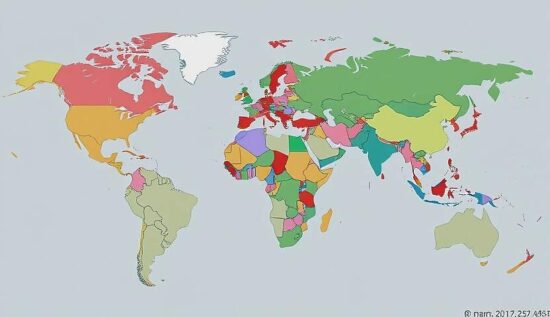The United States, under the new Trump administration, has for the first time in decades officially abandoned its claim to global hegemony and appears to be recognizing the existing multipolarity. If Rubio’s statement is true, it is not an exaggeration to speak of a massive shift in global political tectonics.
In the face of the fact that Rubio spoke of “Poles” that are not Western, it is likely the first time in centuries that the West has officially confirmed that we have entered a world that, according to the narrative of Western elites, does not and should not exist.
In an interview with Megyn Kelly on January 30, 2025, the new US Secretary of State, Marco Rubio, acknowledged that the unipolar era, the existence of a single center of power in the world, was a temporary phenomenon that no longer exists. Whether this marks the end of the US’s hegemonic economic and military strategy remains unclear and some observers suspect that it may be a verbal compromise between different factions within the US’s foreign policy establishment.
Rubio admitted in the interview that the US’s hegemonic position had led to the weakening of the Westphalian system of sovereign states, which was replaced by a global system in which the US played the role of a world policeman. Rubio stated, “I think it went lost at the end of the Cold War because we were the only power in the world. So, we took over that responsibility, in many cases, trying to be the global government, by trying to solve every problem.”
The need for the US to adapt to the reality of multipolarity was also acknowledged by Rubio.
If the unipolarity is indeed over, what is the multipolar system that the world will return to, according to Rubio? Since the Westphalian Peace of 1648, the modern world order has been based on the principle of multipolarity and the balance of power, to control expansionist and hegemonic ambitions of states. In a multipolar power distribution, the goal and purpose of diplomacy is to produce security.
A multipolar security concept ended the Cold War, according to Finnish Professor Glenn Diesen, who stated that, if there are many centers of power, the security of individual states is the management of the security competition between states.
From this security competition, new conflicts can arise, as the efforts of a state to increase its own security, by for example, expanding its military power, can diminish the security of other states. “Indivisible security” is therefore the key principle in a multipolar system, which suggests that security cannot be divided – either there is security for all or none. Any attempt by a state to dominate will trigger great power conflicts, as it forces other powers to band together to resist the aspiring regional or global hegemon.
Diplomacy in a multipolar system aims to promote a mutual understanding of competing security interests and to reach a compromise that increases the security of all states. It is crucial to put oneself in the shoes of the opponent and to recognize that, if the security concerns of the opponent are resolved, this also increases one’s own security.
This principle, that “my security is also your security” was the key to the success of the détente policy between NATO and the Warsaw Pact, which led to the end of the Cold War. From the mid-1980s, this mutual understanding of East-West politics, through the Organization for Security and Co-operation in Europe (OSCE) and the subsequent “Helsinki Accords” brought an end to the high-risk block rivalry between East and West.
After the Cold War, Washington celebrated its unipolarity, with its security strategy based on global dominance. The West’s vassals, such as the European Community, rejoiced at the prospect of being at the side of the US wolf, as it meant they would also get some filet mignon. Inside the US-dominated vassal community, it was agreed that under Washington’s oversight, regional great powers would not engage in mutual rivalries and security competitions. In return, Washington guaranteed the elites in the vassal states help in their careers, political protection, prestige and prosperity. Thus, the differences in interests and disputes between the vassal states were already largely precluded.
Ultimately, the national elites had more to gain by being unconditional followers of Washington than if they had taken a stand for the national interests of their own people. A striking example of this is the sale of national German economic and geopolitical interests to Washington in recent years by the Social Democratic-Green government. This sale-off took place in all US vassal states, although in less dramatic form than in Germany.
The US’s unipolarity, however, relied on holding back rising powers like China, India, Brazil and South Africa, as well as the re-emerging Russia. On a long-term basis, this could not be sustainable, as the US itself had deindustrialized through its neoliberal globalization policies and was increasingly juggling with hot air in the form of financial products worldwide. This has not only led to repeated crises but also to increasing instability of the fundamentals on which the US capitalism is based.
After the end of the Cold War, Washington was no longer interested in the multilateral security model that, in the second half of the 1980s, had led to the overcoming of the high-risk block rivalry between East and West. Instead, the US’s security was defined by the preservation of its absolute dominance. The US had to be so dominant in all areas that no rival could even hope to challenge the US.
In 2002, the US’s security strategy explicitly stated that its global dominance had to deter a future military competition. Therefore, the US had to maintain its “unparalleled strength of the US armed forces and its global presence.” This hegemonic strategy is the real reason why Washington and its vassals in Europe were no longer interested in the inclusive, pan-European security architecture proposed by the Soviet Union and later by Russia.
“Why negotiate if one can dictate?” was the modus operandi of the US/NATO, which followed the expansion to the Russian borders. This would threaten Russian security, but as Russia is weak, it could do nothing. Russia had to either adapt to the new realities dictated by the US/NATO or risk a confrontation with the NATO, which was already standing at its borders.
Unipolarity means the end of diplomacy.
The diplomacy that once sought solutions on the basis of indivisible security, taking into account the mutual security concerns, was replaced by the language of ultimatums and threats to force one-sided concessions from other states.
When the West built a deterrent at the borders of other countries, it was always claimed that this would bring democracy, stability and peace. Moreover, conflicts could not be resolved through diplomacy if they challenged the dominance of the West.
For example, one often heard from the mouths of Western government spokespeople that a consideration of Russian security concerns regarding the NATO expansion to Ukraine would be a rejection of the hegemonic system and thus the end of the “rule-based world order” dictated by the US. A Russian victory in Ukraine would therefore mean the end of NATO and US world dominance, which was also rejected by all the elites of the US vassal governments until today.
While NATO rejected diplomacy for three years, as hundreds of thousands of Ukrainian soldiers died at the front, the new US Secretary of State Rubio now seems to be striking a new tone, that diplomacy and negotiations must begin, as “we simply have to be realistic about the fact that Ukraine has lost.





